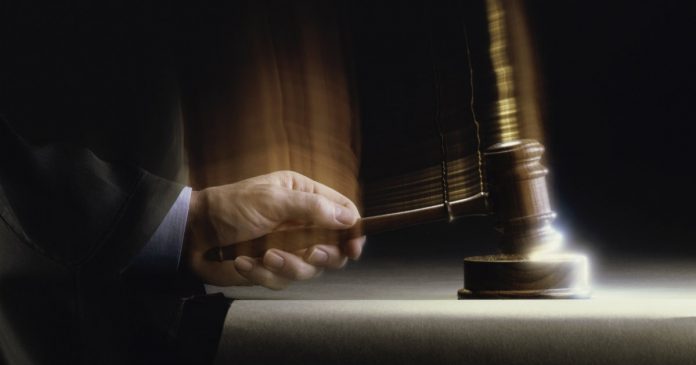Supreme Court Judgment- Lok Prahari vs. State of U.P. & Ors (2016) 8 SCC 389)
Introduction
In this case, a writ petition of civil nature in the year 2004 was filed in the Supreme Court of India. It was filed by an NGO Lok Prahari which is based in Lucknow (U.P). It comprised members who were retired judges, Indian Administrative Officers, journalists, retired officers of Indian Police Services etc.
This important case was filed by the general secretary of this NGO, who had a law degree hence himself argued the matter in the Court. Interesting fact about this matter was that on the very first day of the hearing, judgment was reserved by the court but it was pronounced after 12 years of the filing of the petition and 20 months after reserving of this particular judgment by the Supreme Court of India.
Facts-
Following are the brief facts of this case:
- This petition was filed by an NGO which was registered under Societies Registration Act. The NGO worked for the welfare of general public. Its secretary who was retired IAS officer appeared and argued the matter on behalf of the NGO.
- This matter was related to the conduct of former Chief Ministers of Uttar Pradesh and their unauthorized use of government accommodations.
- The prayer was made by the petitioner that the former Chief Ministers of U.P have not vacated the government accommodations and bungalows even after they have released from their posts as Chief Ministers. These persons were in possession of the properties illegally without any right to use such property.
- The contentions were made challenging the validity of Ex-Chief Ministers Residence Allotment Rules, 1997. These rules were illegal, and could not be framed in contradiction of the provisions of the Uttar Pradesh Ministers (Salaries, Allowances and Miscellaneous Provisions) Act, 1981.
- It was pointed out by the petitioner that a petition was filed as Public Interest Litigation in the year 1996 in Allahabad High Court pertaining to the same situation by Janhit Sangathan. Till that time there were no such rules allowing former chief ministers to use the government residential accommodations.
- It was contended that during the pendency of above mentioned petition in Allahabad High Court State of UP/ respondent framed rules for providing government residential accommodations to former CMs for their life and after death their family member would vacate the same within three months.
- Petitioner stated that such petition was amended and it challenged the validity of the same rules but at the time of disposal no consideration was paid to that ground
- It was argued by that petitioner that the rules made by State government of UP are arbitrary in nature and non-statutory as well as violative of Art 14 of the constitution in respect of the persons like justices of high court, judges, other ministers, speakers of assemblies etc. They also hold the constitutional positions but are given different treatment than CMs.
- Petitioner prayed that the petition should be allowed and 1997 Rules be quashed as they were violative of Art 14 of the Constitution.
- The contention was made by the respondent that in India the federal structure is followed, no expressive bar is there if provision is made by the state government for allotment of residential accommodation to ex-Chief Ministers.
- It was contended by respondent that former Presidents and the Prime Ministers are also allotted residential accommodation by the government after they cease to be on such positions according to the provisions of President’s (Emoluments and Pension) Act, 1951.
- The question was made on behalf of respondent about the right of the petitioner for challenging the validity of the 1997 Rules. It was argued that the petitioner has no locus standi to challenge and this was the ground in petition of 1996 before High Court which was disposed off without invalidating these rules, hence this petition was not maintainable on the same ground.
Issues involved
- Whether this public interest litigation is maintainable and petitioner has locus standi to file the same petition?
- Whether the provisions of newly formed rules (Ex-Chief Ministers Residence Allotment Rules, 1997) are valid or in contravention of provisions of the Uttar Pradesh Ministers (Salaries, Allowances and Miscellaneous Provisions) Act, 1981?
Judgment and Decision[ii]
- The Supreme Court of India regarding the first issue held that the petitioner which was an NGO having retired civil servants, police officers, judges, journalists as members living in UP. It works for public welfare. No bad intention was found on the part of the petitioner. No grudges against any respondent were found.
- Court held that the petitioner challenged the 1997 Rules related to the use of government bungalows by former CMs of state when there is shortage of such accommodations for relevant people. Petitioner had the locus standi or the right to file such petition.
- It was held by the court that ministers could not be given same privilege as given to ex-Presidents and Prime ministers.
- Regarding the second issue court held that Rules 1997 were executive instructions and administrative in nature. They are in contravention of Uttar Pradesh Ministers (Salaries, Allowances and Miscellaneous Provisions) Act, 1981 which is statutory in nature. Latter would prevail over the former.
- It was also held by the court that Ex-Chief Ministers Residence Allotment Rules, 1997 were not statutory and were made in contravention of the Act of 1881, hence not valid.
- On the basis of above, Apex Court allowed the petition and directed that respondents shall hand over the possession of such bungalows within two months and state government shall recover the rent from concerned people of the period for which they were in unauthorized possession of such property.





